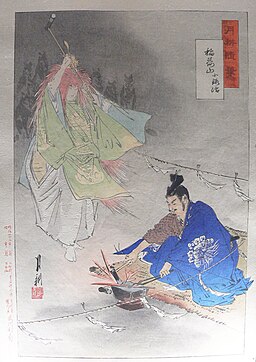In the Magazine: Writing by Instinct
Posted on May 22, 2018

I finally got rid of my cat. I thought this would enable me to start a new life. So begins Can Xue's funny, disturbing story, "The Bane of My Existence,"* published this month in the 15th anniversary issue of Words without Borders. The issue's title, "Great Explorations," comes from an essay of Can Xue's, in which she comments:
An advanced modern reader acts like a detective. In the forest of books, he can follow the clues and discover the enormous treasures underlying them. Those books give him messages: his inner concentrated essence receives the messages and immediately produces new ones. These blended messages lead him to enter a tunnel of the spirit, and in that place he begins a great exploration.
In her own writerly explorations, Can Xue follows instinct rather than reason, and "The Bane" is an example of just how far instinct--- both literary and animal--- can take us. As students read about the narrator's attempts to tame a stray cat, they can use this line from the story as a guiding question: Where did it all go wrong?
Or, you might pause their reading at several key moments, and ask what they would have done in the narrator's place. Most likely, some of them will reply that they would give up the cat, which is a logical response. Ask them why the narrator doesn't do that. What is happening to her, on an emotional (rather than logical) level?
This story also offers a window into ancient Chinese and Japanese culture with its mention of the "fox spirit." In Myths and Legends of China, a 1922 book, Edward T.C. Werner writes:
Generally, the fox is a creature of ill omen, long-lived (living to eight hundred or even a thousand years), with a peculiar virtue in every part of his body, able to produce fire by striking the ground with his tail, cunning, cautious, sceptical, able to see into the future, to transform himself (usually into old men, or scholars, or pretty young maidens), and fond of playing pranks and tormenting mankind. You might ask students whether they notice any similarities between descriptions of the fox spirit and of the cat in this story.

Pairs Well with…
- "The Old Cicada," also by Can Xue, also about fauna, but with a very different mood
- "It's a Chick, Not a Dog," from Egypt, another story that asks whether certain animals can ever be tamed
- "The Hole in the Garden," from Japan, a story about a mysterious mail-order pig that grows to "your heart's desire"
- "Bartelby, the Scrivener," about another attempt to control the uncontrollable
- Shakespeare and Dante, among the classical Western authors Can Xue cites as influences.
- "Cat Person," from the December 2017 New Yorker, also about an ill-matched couple: "Before he got out of the car, he said, darkly, like a warning, “Just so you know, I have cats.” (sexual references)
Potential Assignments:
- Fiction: Write your own story, beginning with one character's seemingly small decision. As you write about the consequences of that decision, follow your instincts rather than your reason. What might happen?
- Essay: Take one of the narrator's broad statements: ---Nothing is intolerable if you've made up your mind that you have to put up with it, There were always solutions ,or a different one ---and write about whether it seems true to you, given the events of the story.
- Essay 2: What does the narrator mean when she writes, All I knew was that I couldn't bear to even imagine everything the future would bring? What has happened to her over the course of the story? What do you imagine for her future?
* Note to secondary teachers: the story includes some off-color language, and a cat is harmed.
If you use this story in classroom, do let us know how it goes!



